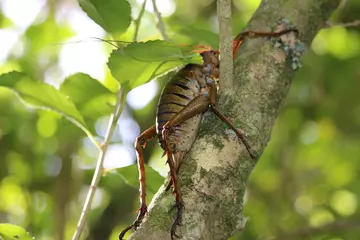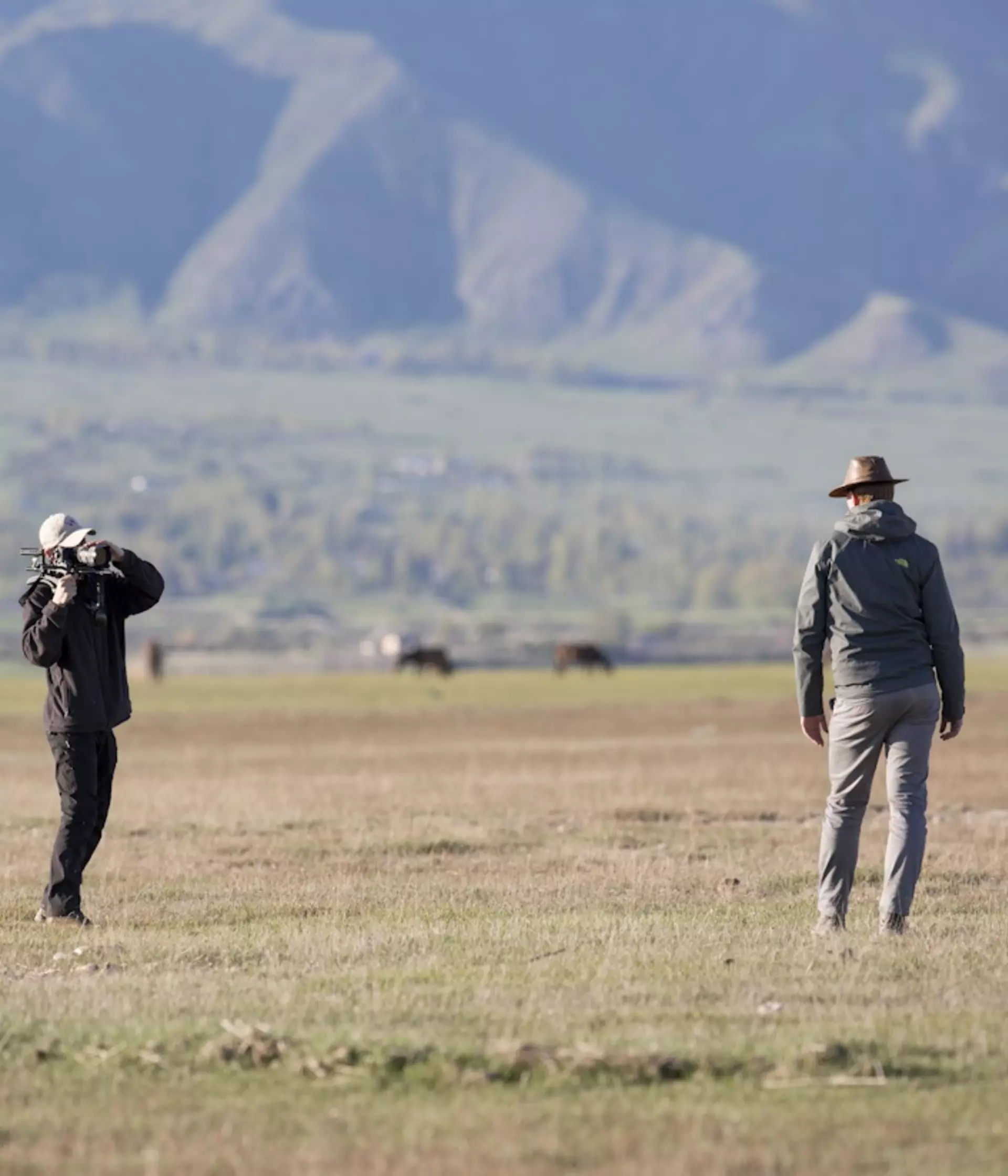Joshua Elves-Powell
PhD Researcher
Joshua Powell, ZSL PhD student, takes us behind the scenes of his new conservation short film, Saving Britain’s Islands, and discusses the logistical challenges of filming during a pandemic. Watch the film for yourself below.
Putting together a film during a global pandemic was never going to be easy, particularly one that featured island conservation on the other side of the world. Here’s how we went about doing so…
In my last blog, I talked about why islands are critical sites for biodiversity conservation and how we can learn from New Zealand’s pioneering work in this field. One of the issues is that offshore islands, like the UK Overseas Territories (UKOTs), are often remote and overlooked. So how can we engage wider audiences with this crucially important field of conservation?
I am particularly interested in how natural history filmmaking can be used to introduce conservation stories to public audiences and over the past few years, I’ve worked with filmmakers in the Tian Shan Mountains of Central Asia; Greenland, Nunavut, Svalbard and Franz Josef Land in the Arctic; the Caucasus; and Yellowstone National Park in the USA.
Creating a film in a global pandemic
While we did not have the budget to produce a large blue-chip documentary, I reasoned that a short conservation film would be a realistic objective. The film would target audiences in the UK and would serve as an introduction to island conservation, while also serving as what is known in filmmaking as a ‘proof of concept’.
The first step was to decide the film’s focus, which involves deciding the story you want to tell and building necessary contacts. I had previously travelled as a Churchill Fellow on island conservation to New Zealand, Australia and Fiji, where I investigated the development of innovative island conservation practises and how they could be used to help safeguard biodiversity on the UKOTs. This gave us a starting point for our film.
The British Ecological Society (BES) kindly agreed to fund the project, through their Regional Fund. I also had to recruit a team of filmmakers happy to work with a limited budget and the restrictions imposed by the ongoing COVID-19 pandemic. However, within a few weeks of looking through some excellent applications, I was delighted to have assembled a team with a wealth of filmmaking experience.

The all-important film crew
Matt Jarvis (production/editing) and Benjamin Harris (camera) would cover the UK and UKOTs, while Ben Sarten (camera) would be responsible for capturing footage on the New Zealand island of TiriTiri Matangi. The pioneering restoration of TiriTiri Matangi would form our focus for New Zealand, as it has inspired similar projects around the world. Importantly, the island is close to Auckland, which meant that Ben would be able to complete filming within a day, increasing the likelihood that we would be able to navigate any challenges COVID-19 threw up.
Choosing a focus area and tricky logistics
Island conservation is a broad field and there were several areas we could have focussed on. We decided to look at one of the most important, invasive species eradications. With the assistance of the South Georgia Heritage Trust (SGHT) and the Supporters of TiriTiri Matangi, we would tell the story of how New Zealand has become a world leader in these approaches and how they are now being applied on the UKOTs, as in South Georgia.
Securing appropriate permissions is an important part of filmmaking. A few weeks of applications for Department of Conservation permits, with the local Iwi having granted their approval, and Ben was ready to set sail for TiriTiri Matangi. That in itself was an adventure that included getting stuck in the mud on an outgoing tide, engine repairs and midnight navigation of a tidal estuary!
Getting footage from South Georgia would prove even harder. Help was at hand from Ines Possemeyer and her team at GEO, a German magazine who had filmed with the SGHT. Ines kindly provided us with footage from South Georgia, without which it would have been impossible to capture the island’s wild majesty. Benjamin Harris, our UK cameraman, happened to be in Scotland filming with the BBC, so was able to get an interview with Alison Neil MBE, Chief Executive of the SGHT, before further lockdowns were introduced.

The final stages
All that was left was for Matt Jarvis, who led post-production, to bring the film together. Looking over the finished product now, I am still amazed that we managed to pull off this project in the circumstances. Matt, Benjamin and Ben all deserve great credit for their creativity, resilience and talent, without which this would have never been possible.
We ran a free, online ZSL Science and Conservation event on 15th February 2021, to learn more about our film and efforts to protect the world’s offshore islands. (This event has now passed but you can see a recording of the event here.)
We were joined by ZSL scientists, as well as representatives of the South Georgia Heritage Trust and RSPB, to talk about island conservation and Saving Britain’s Islands. Make sure you watch the film beforehand!
Finally, thanks must go to the following individuals and organisations, who helped make this film a reality. Dr Chris Jeffs at the British Ecological Society; Charlotte Coales here at ZSL; Dr Kay Milton; Ines Possemeyer at GEO; The Supporters of TiriTiri Matangi and The South Georgia Heritage Trust; and the Winston Churchill Memorial Trust (UK).
